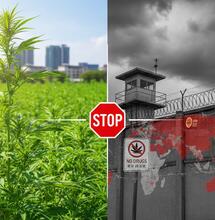The Cannabis Conversation Parents Can’t Avoid

Cannabis is becoming increasingly normalized, both for medicinal and recreational uses. As laws change, parents face a new question: should cannabis be part of “the talk,” like alcohol and tobacco? Discussing cannabis with young adolescents without normalizing it is possible. Any such conversation would, of course, require sensitivity, timing, and awareness of local laws.
As cannabis becomes more mainstream in society, parents face a new kind of conversation — one that previous generations rarely had to consider. Should parents talk to their kids about cannabis the same way they do about alcohol or tobacco? The answer isn’t simple, but in the age of legalization and normalization, silence may no longer be an option.
Why Parents Need to Discuss Cannabis
Whether it’s for medical or recreational use, cannabis is now legal in many places around. Legal shops have replaced back-alley deals, and cannabis is discussed openly in movies, music, and social media. Kids are bound to encounter it sooner or later — whether through curiosity, peer groups, or simply noticing that ‘strange smell’ on the street.
Parental silence can lead to misinformation from peers or the internet. When parents avoid the subject — and this seems to be true for other sensitive subjects as well — kids will look elsewhere for an answer. Having an open conversation early, before curiosity meets opportunity, can help set realistic expectations and may encourage responsible decision-making later on.
What Research and Experts Suggest
Most experts agree that early prevention is best approached through education, not fear tactics. Just as with alcohol or tobacco, education rooted in facts, empathy, and trust proves far more effective.
It is generally agreed among health experts that adolescent cannabis use can interfere with brain development. It can affect memory, focus, learning and motivation in young individuals. Therefore, adolescents need to be aware of the health risks that come with the consumption of cannabis.
Public health campaigns increasingly focus on harm reduction rather than prohibition — helping young people understand why certain behaviors carry risks, not just telling them not to do something.
This is supported by science. In one study, researchers followed early adolescents (initially in grade 7) over about 30 months and looked at how parents and teens engaged in what they termed different “drug-talk styles” (for example: direct vs. indirect; ongoing vs. one-off) when discussing substance use (alcohol, cigarettes, marijuana).
They found that when parents engaged in more ongoing and direct conversations (rather than never talking or only giving indirect hints), adolescents reported lower rates of alcohol, cigarette, and marijuana use.
Parents who communicate clearly and calmly about sensitive topics such as substance use tend to raise teens who are more discerning and less impulsive about experimenting, according to more research.
A Key Part of the Conversation is Legality
How parents approach this topic often depends on where they live. In legal states or countries, it’s important for children to understand this regulation — age restrictions, safe use, and the difference between adult choice and underage use. Parents can explain that, even though cannabis is legal for adults, it still carries significant risks and isn’t safe for children or teens.
In places where cannabis remains illegal, the conversation naturally shifts towards lawfulness, consequences, and safety. Yet even there, it’s crucial to separate moral judgement from factual understanding. Kids can grasp that something may be illegal and risky without needing to view it as inherently evil or taboo.
Either way, honesty builds trust and credibility. Open, truthful conversations about cannabis help youths feel safe asking questions, getting facts, and making informed choices.
When and How to Talk About Cannabis
Timing matters. Experts generally recommend bringing up cannabis once children are socially active — after adolescence begins, when peer influence increases. The goal isn’t to endorse or condemn, but to offer reliable guidance before they encounter misinformation or pressure.
Here are some tips for parents:
- Keep it age-appropriate: Start with general discussions about health and responsibility, and build on that as kids mature.
- Be honest and calm: If you use or have used cannabis, frame your experience responsibly.
- Encourage dialogue: Let children ask questions freely, without fear of judgement.
- Show, don’t just tell: Kids notice more than you think — actions speak louder than words. Showing consistent, responsible behavior often teaches lessons far better than any lecture.
Bottom line: how parents act and the attitudes they show will shape how kids see and understand cannabis.
Editorial View: It’s About How, Not If
Parents shouldn’t ignore cannabis just because the topic feels uncomfortable. After all, can you really ignore it if you live in an area where dispensaries and visible symbols like green marijuana fan leaves are all over the place? The conversation isn’t about normalizing use — it’s about normalizing knowledge. In a world where kids are exposed to substances earlier than ever, informed parenting is one of the best forms of prevention.
Still, discretion is key. Not every child is ready for the same conversation at the same age, and the family’s environment — cultural, legal, or personal — should guide the tone. A thoughtful approach rooted in trust and openness is far more effective than fear or avoidance.
As cannabis steps further into everyday life, so too must the conversations around it. Whether a parent lives in a legal state or not, addressing cannabis with honesty and good timing can help children navigate an increasingly complex world. Like with alcohol, what matters most isn’t simply having “the talk” — it’s having it with care, context, and clarity.
More from Soft Secrets:










